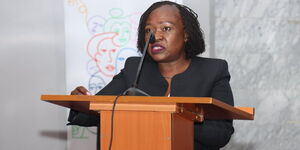While Kenya is ranked among the most progressive markets in Africa through its foray into the digital economy, the World Bank faulted the government for not investing enough in internet connectivity.
In a 2019 report titled Kenya's Economic Update, the World Bank faulted Kenya for leaving millions out of internet connection.
“Rural areas are usually served by a single fiber provider (predominantly government-owned), leading to less competitive pricing and lower service reliability," the report stated.
The report went and added that often, small towns are not served with a fiber connection at all, resulting in slower end-user speeds due to reliance on microwave backhaul.
According to the World Bank report, Kenya's economy can do much better if the government pumped enough money into digital infrastructure to enable many Kenyans to access affordable internet access.
In June 2019, the treasury allocated the ICT ministry Ksh22 billion for the 2019-2020 fiscal year. Ksh1.1 billion was directed to the installation of an internet-based 4000 network and the huge chunk of the Ksh22 billion channeled to the construction of Konza Technopolis Complex.
The above allocation, the World Bank implies contributes to a growing digital divide between the rural dwellers and urbanites with a cascading effect on income potentials of the two groups.
“Every individual, business and government institution in Kenya needs access to affordable and high-quality broadband connectivity and the skills to use it in order to participate in the digital economy," the report detailed.
The report also argued that the level of inequality among Kenyans will rise if the government doesn't move in and ensure Kenyans in rural areas are connected to the internet.
Kenyans who can transact business online earn more financial benefits compared to those who do not
“A digital divide is bad for business because the prospects for e-commerce and digital entrepreneurs depend on the growth of a digitally active customer base to create the scale needed for success.”












